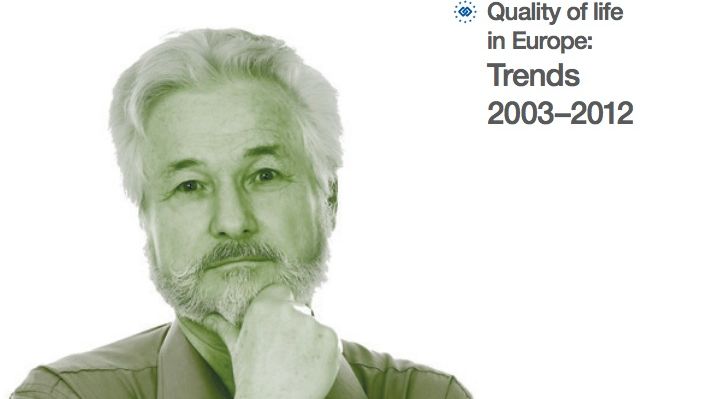
News -
Quality of life trends in Europe over the past decade
Subjective well-being has been stable over the last decade in the EU as a whole. In the Member States with the lowest scores in 2003, well-being increased, and most of the other Member States show more or less stable scores. The main exception is Greece, where the economic crisis is linked to sharp falls in both life satisfaction and happiness between 2007 and 2011.
For the most part, countries with higher levels of life satisfaction in 2007 reported decreased satisfaction in 2011, while those with lower levels in 2007 tended to report increases in 2011. Happiness declined in most countries between 2007 and 2011. In these times of recession, the lowest levels of subjective well-being are reported by the unemployed, particularly the long-term unemployed and people unable to work.
The European Quality of Life Survey (EQLS) examines the multidimensional domains of quality of life, focusing on aspects of everyday life (such as relations with family and friends) and on issues relevant to public policy (such as housing and social tensions). Economic factors – such as the ability to make ends meet, material deprivation and economic status – are also important influences on quality of life. This report explores patterns of change over the last decade in the quality of life of the EU population aged 18 and over. It pays particular attention to differences across different countries, the impact of the economic crisis, and type of welfare regime. Specific attention is also paid to the situation of people in vulnerable situations: people on low incomes, older people, single parents and the long-term unemployed.
The proportion of households in Europe facing financial strain is growing, and there has been an increase in the proportion having difficulty making ends meet, especially among people in the lowest income quartile. Differences in subjective wellbeing between income quartiles are growing.
People aged 50–64 years have a relatively low level of life satisfaction and happiness, and the gap between this group and other age groups is growing.
Satisfaction with family and satisfaction with social life remained high and fairly stable between 2003 and 2011. In terms of work– life balance, the extent to which employees reported being too tired after work to do household tasks returned in 2011 to 2003 levels after a fall in 2007, while the proportion reporting having difficulty fulfilling family responsibilities was stable. The proportion reporting difficulty concentrating at work because of their domestic demands has increased somewhat.
Satisfaction with health decreased between 2003 and 2011, particularly for people in the lowest income quartile. Satisfaction with health in the central and eastern European Member States has increased but is still far below the level of the rest of the EU.
Average levels of trust in other people declined between 2003 and 2011, and there was an even sharper fall in trust in institutions. However, reported tension between social groups in the EU (measured multidimensionally) seems to be decreasing, with the exception of the EU12, where tensions between racial and ethnic groups are perceived as having increased between 2007 and 2011, having fallen between 2003 and 2007. The perception of tension between rich and poor rose between 2007 and 2011. Change in quality of life is associated with trust in people and perceived social tension: greater trust in other people corresponds with better quality of life, while an increase in perceived social tension correlates with reduced quality of life.

